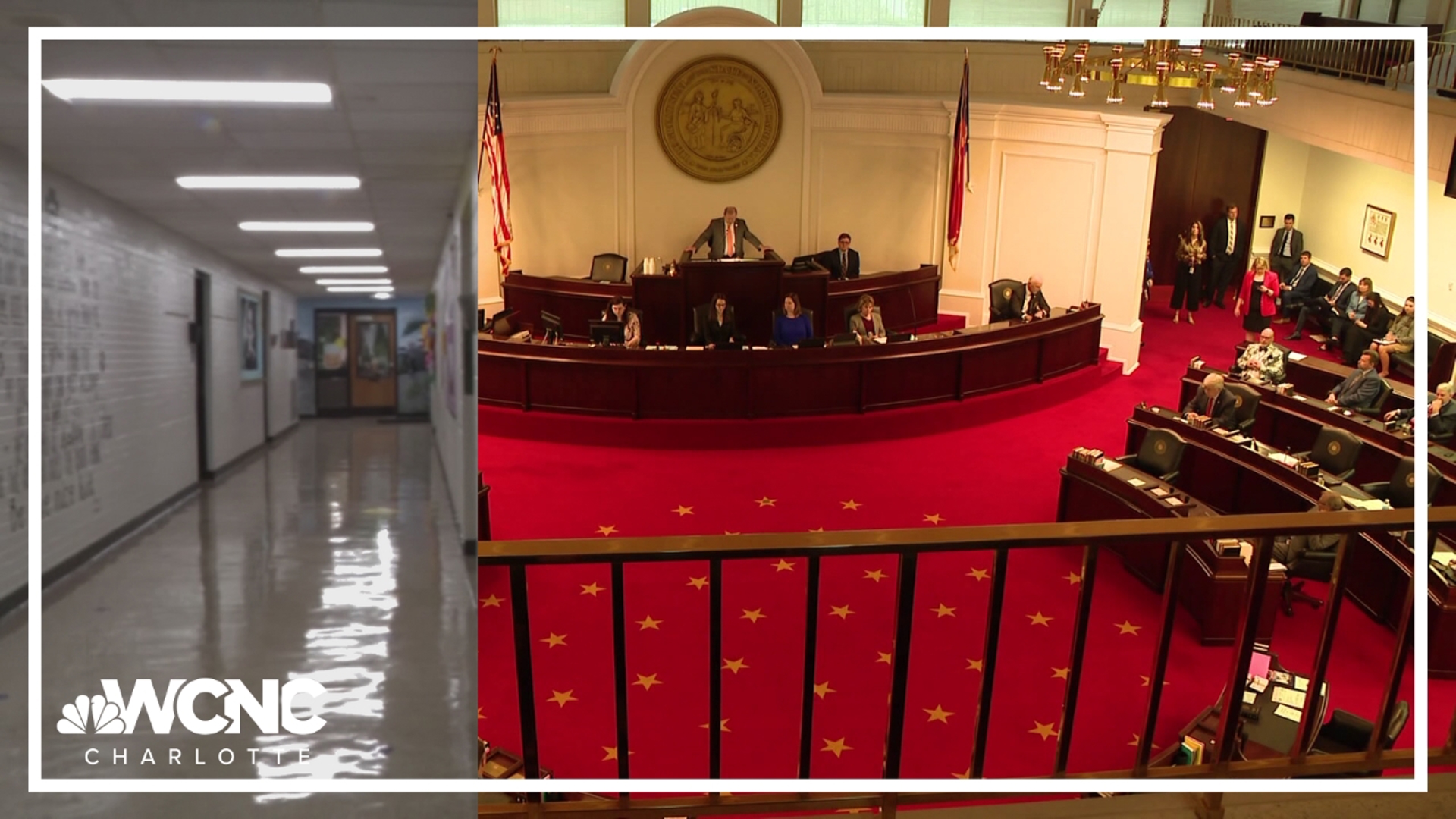RALEIGH, N.C. — The North Carolina House of Representatives voted Tuesday to override Gov. Roy Cooper's veto of House Bill 10, which will increase funding for the state's private school voucher program by over $450 million, if approved by the Senate.
The Republican-controlled House voted 72-44 to override Cooper's veto. The Senate must also vote to override the veto for the bill to become law. That chamber, which is also controlled by Republicans, is expected to debate the bill on Wednesday, according to WRAL.
House Bill 10, which also has an unrelated immigration enforcement measure, passed the House and Senate earlier this year, mostly along party lines. Republicans have a supermajority in both chambers, meaning they can override Cooper's veto power if they vote in lockstep.
Cooper criticized the bill last week, saying the money should instead be directed to Hurricane Helene relief in western North Carolina. Cooper has called the bill "the biggest threat to public schools in decades" since his veto.
One of the bill's sponsors is Rep. David Willis, a Republican from Union County. He argues the vouchers would help families access better educational opportunities, especially as more than 50,000 students remain on a waitlist for alternatives to public schools.
"Those tax dollars that those families pay each and every year should follow that student and allow the parents to choose the best school, the best educational setting for each child," Willis previously said.
Critics, however, say this would drain much-needed funds from already struggling public schools.
Democratic Rep. Brandon Lofton of Mecklenburg County warns the proposal could further harm an education system facing significant budget and staffing challenges.
“I’m actually seeing more parents, the majority of parents, who are choosing public schools, who want their children in public schools, they’re just upset and feel let down because those of us in Raleigh are not doing our job to support those children that are in the public schools," Lofton previously said. "You cannot educate children on the cheap. You have to have a high-quality workforce in our teachers and that requires paying them enough to keep them in the classroom.”
With the bill expected to become law, local sheriff's offices are preparing for shift requiring them to cooperate with U.S. Immigration and Customs Enforcement (ICE).
For the Union County Sheriff's Office (UCSO), it won't be much of a change. The office says it's been working with ICE for years in a relationship, it says, has only helped the community.
“The work that it takes is very minimal compared to the reward that it offers in helping us keep dangerous criminals off the street," Lt. James Maye with UCSO said.
Lt. Maye pointed out a case from just this past September where 23-year-old Michael Giovanni Bejarano Rodriguez, who is not a U.S. citizen, was arrested, accused of participating in an organized crime ring targeting high-value homes across the country, including in Union County.
"During his apprehension and processing into the detention center," Maye said, "ICE and customs enforcement issued an immigration hold which allowed us to maintain custody of that dangerous criminal pending deportation.”
But, not all sheriffs are on board with the change.
Mecklenburg County Sheriff Garry McFadden has been opposed to HB10 and similar measures for years, speaking to WCNC Charlotte anchor Jane Monreal last year about ways he says his office already works with ICE without the new law.
"We ask the person about their citizenship. If we cannot determine their citizenship, we contact ICE," McFadden said.
But McFadden said he isn't in favor of detaining people for ICE beyond when the courts say they should be released and worries the bill would force the sheriff's hand, costing taxpayers and putting sheriffs at risk.
“If I do, then I’m going against the courts," McFadden said. "If I don’t I’m fine, but he has no authority, legal authority, to tell me to hold that person."
As the debate heats up in Raleigh again, all eyes will be on lawmakers to see whether the governor’s veto will be overturned — and what it will mean for students, families, and schools across the state.
Contact Destiny Richards at drichards5@wcnc.com and follow her on Facebook, X and Instagram.
Contact Kayland Hagwood at khagwood@wcnc.com and follow her on Facebook, X and Instagram.

